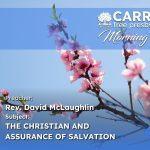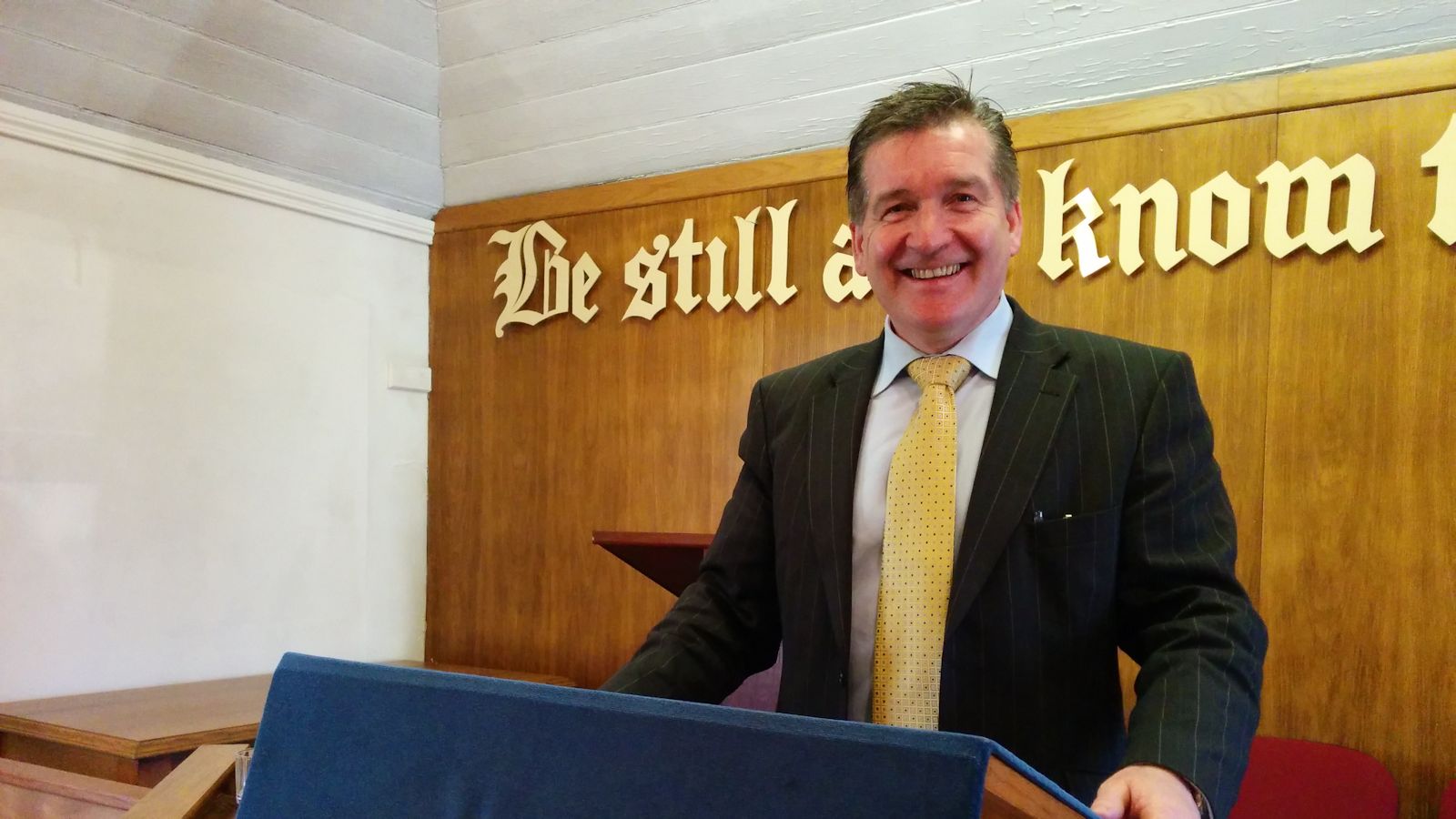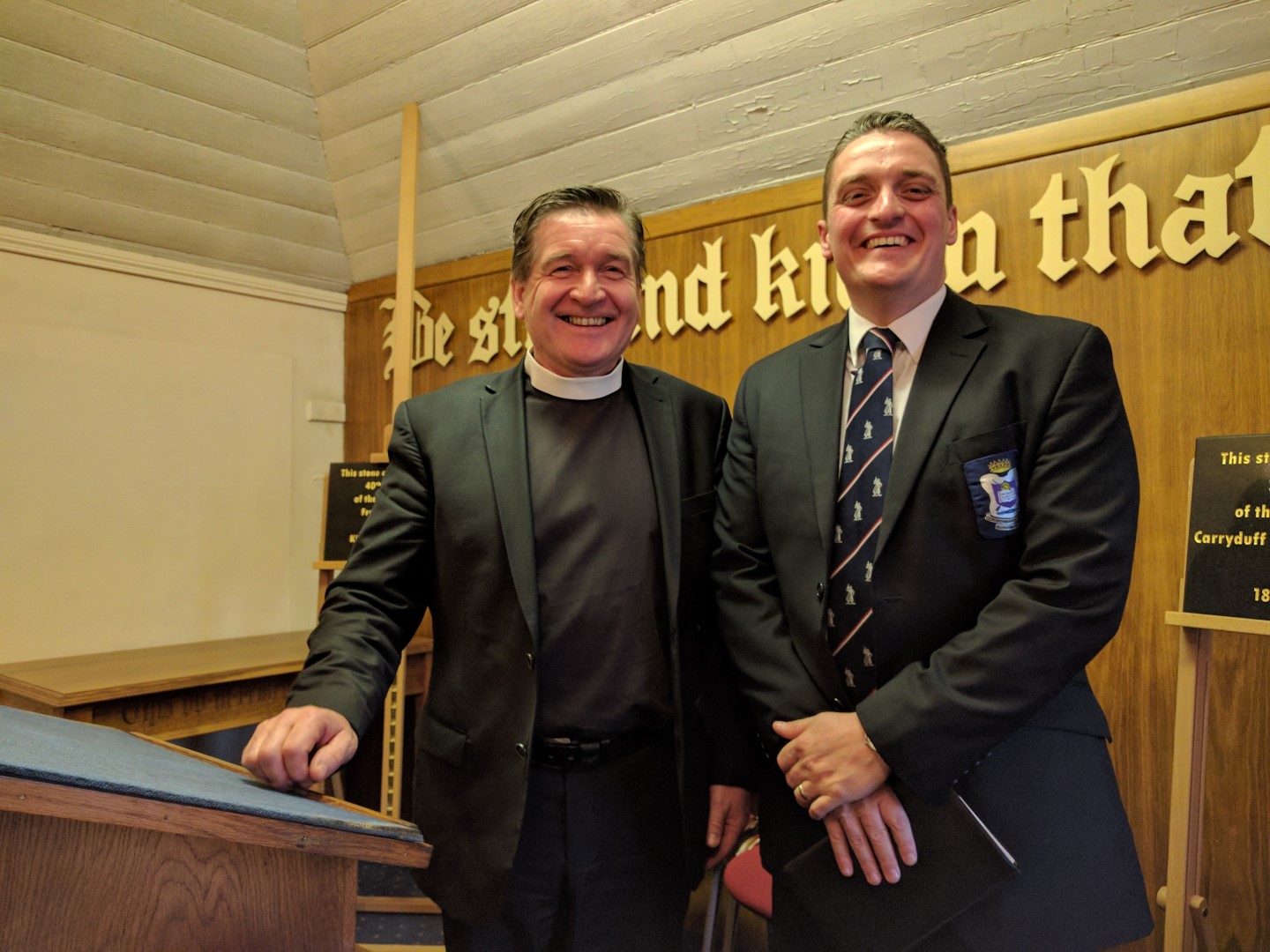Date: SUN 7:00pm 27th July 2025
Preacher: Rev. Michael Patrick
Bible Reference: 2 Timothy 1:12
12 For the which cause I also suffer these things: nevertheless I am not ashamed: for I know whom I have believed, and am persuaded that he is able to keep that which I have committed unto him against that day.
This sermon is rooted in 2 Timothy 1:6–12 and 4:6–8, focusing on the Apostle Paul’s final exhortations to Timothy, his confidence in Christ, and the assurance of salvation.
Summary of the Sermon
Scriptural Basis and Context
The sermon draws from two passages in 2 Timothy, a letter written by the Apostle Paul to his young protégé, Timothy, from a Roman prison as Paul faced imminent martyrdom. The primary texts are 2 Timothy 1:6–12 and 4:6–8. The preacher highlights the significance of these passages as Paul’s final words, which carry a weight of solemnity and urgency. Written in the shadow of execution, Paul’s letter reflects his unwavering faith, his encouragement to Timothy to remain steadfast, and his joyful confidence in Christ despite suffering and abandonment.
Key Themes and Structure
The sermon is structured around three main points: the beginning, basis, and blessing of Paul’s confidence in Christ, with a strong emphasis on the personal nature of faith and salvation. The preacher uses Paul’s example to exhort the congregation to trust in Christ alone for salvation and to live with assurance in the face of life’s trials and the coming judgement.
1. The Beginning of Paul’s Confidence
The preacher begins by focusing on 2 Timothy 1:12, where Paul declares, “For I know whom I have believed, and am persuaded that he is able to keep that which I have committed unto him against that day.” The phrase “that which I have committed” is central, portraying the act of faith as a deliberate entrusting of one’s soul to Christ for safekeeping, akin to depositing precious valuables in a bank vault. This imagery underscores the preciousness of the soul, as affirmed by Jesus’ words in Matthew 16:26: “What shall it profit a man, if he shall gain the whole world, and lose his own soul?”
Paul’s confidence stems from his recognition of the soul’s eternal value and the peril of sin, as described in Romans 7, where he recounts his awakening to sin’s burden. As a former Pharisee, Paul once trusted in his religious works for salvation, but through the work of the Holy Spirit, he was humbled to realise his inability to save himself. The preacher illustrates this with the analogy of a mountain walker lost in a storm, who must fully trust a guide to lead them to safety. Similarly, salvation requires complete, unreserved trust in Christ, committing one’s soul to Him as the only Saviour capable of redeeming and preserving it.
2. The Basis of Paul’s Confidence
The sermon emphasises that Paul’s confidence is not based on his own achievements, experiences, or religious credentials, but solely on his personal knowledge of Christ. The preacher highlights Paul’s words, “I know whom I have believed,” noting that Paul does not say “I know what I have believed,” though sound doctrine is vital. This distinction underscores that true faith is not merely intellectual assent to doctrine but a personal, relational trust in Jesus Christ.
Paul’s intimate knowledge of Christ was forged through years of service, suffering, and divine encounters, such as God’s presence during trials in Corinth, his stoning in Asia, and his survival in a storm at sea. Despite these extraordinary experiences, Paul’s confidence rests not on them but on Christ’s sufficiency. The preacher warns against misplaced confidence in religious rituals or creeds without a living relationship with Christ, illustrating this with his own youthful misunderstanding of Christianity as mere church attendance. True Christianity, he asserts, is knowing and trusting Christ personally.
3. The Blessing of Paul’s Confidence
The blessing of Paul’s confidence is his calm assurance in the face of death and the coming judgement. In 2 Timothy 4:6–8, Paul writes, “For I am now ready to be offered, and the time of my departure is at hand. I have fought a good fight, I have finished my course, I have kept the faith: Henceforth there is laid up for me a crown of righteousness.” Despite imprisonment, abandonment by others (2 Timothy 1:15, 4:10, 4:16), and the uncertainty of a martyr’s death, Paul remains unshaken, confident that Christ will keep his soul secure until the day of judgement.
The preacher connects this assurance to the congregation’s experiences, citing examples of believers like George McCall and James McCall, whose faith provided comfort to their families at their passing. Paul’s readiness for death serves as a challenge to the congregation: “Are you ready?” The preacher references the hymn “I have an anchor that keeps the soul,” urging listeners to cast their anchor into Christ, the “Rock of Ages,” by fully committing their souls to Him.
Exhortation and Application
The sermon concludes with a passionate call to salvation, urging listeners to trust Christ immediately, whether in their homes or at church. The preacher shares two personal anecdotes to illustrate the simplicity and power of saving faith:
- His own conversion, where he prayed for Christ to enter his heart and make him a “real Christian” after recognising his sinfulness.
- A story of a woman who, convicted during a tent mission, accepted Christ in a field, later recording her testimony as “saved in the gap of the field.”
These stories reinforce the message that salvation is accessible to all who trust in Christ, regardless of setting or circumstance. The preacher closes by urging the congregation to cry out, “Lord, save me,” and to place their faith in Christ’s ability to cleanse them from sin and secure their eternal future.
Key Takeaways
- Salvation by Faith: True faith involves committing one’s soul to Christ, trusting Him alone for salvation, not relying on personal works or religious rituals.
- Personal Knowledge of Christ: Christianity is about knowing and trusting Christ personally, not just adhering to doctrine or attending church.
- Assurance in Christ: Believers can face death and judgement with confidence, knowing that Christ is able to keep their souls secure.
- Urgency of Decision: The sermon calls for immediate trust in Christ, using personal stories to show that salvation is simple, accessible, and transformative.
Conclusion
The sermon is a powerful exposition of 2 Timothy, using Paul’s final words to Timothy to encourage steadfast faith, personal trust in Christ, and readiness for eternity. Through scriptural analysis, personal reflections, and urgent appeals, the preacher challenges the congregation to examine their own faith, ensuring they know and trust Christ as Paul did, with confidence that He is able to keep what is committed to Him against the day of judgement.
Subscribe to the podcast here:
Spotify Podcasts | Apple Podcasts | Pocket Casts
Email | RSS | more information here








